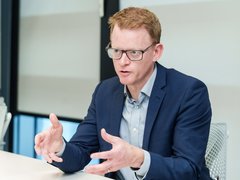Our research projects
Find out more about the research projects you're currently helping us to fund around the country.
118 results found.
Targeting transcription factors in blood cancer - Dr Feldhahn
Read more about how Dr Feldhahn plans to develop new scientific technology which he hopes could lead to a new drug treatment for acute lymphoblastic leukaemia (ALL).
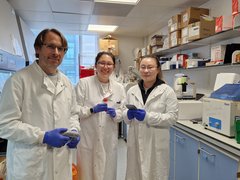
Targeting specific proteins in AML cancer - Dr Radzisheuskaya
Read more about how Dr Radzisheuskaya is seeking to understand the roles of specific proteins so she can develop more effective treatments for people with AML.
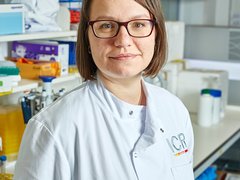
Identifying the tiny cells that causes AML to evade detection and survive
Read more about how Professor Tonks plans to investigate a new method that could help ensure all AML cancer cells are destroyed so the cancer is unable to come back.
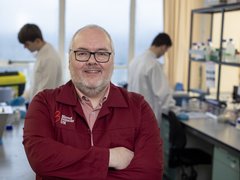
Understanding what causes blood cells to become cancerous - Dr Payne & Dr Lubin
Read more about how Dr Payne and Dr Lubin plan to develop a new tool to help find new ways to prevent blood cancers from developing.
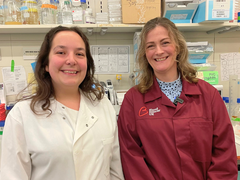
Understanding how AML cancer cells deal with stress
Dr Papamichos and his team are researching to understand how AML cancer cells deal with stress so they can find ways to stop these cancer cells dividing and multiplying out of control.
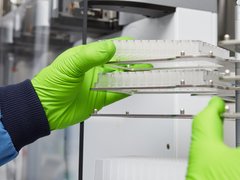
Understanding why CAR-T cell therapy works for some people but doesn’t work for others
Dr Claire Roddie is researching to understand why CAR-T cell therapy is an effective treatment for some people with blood cancer but doesn't work well for everyone.
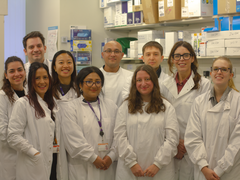
Advancing treatment for leukaemia - Professor Tom Milne
Professor Milne wants to find out why drugs that block a protein called menin only work for some people to help make drugs effective for more people with leukaemia.
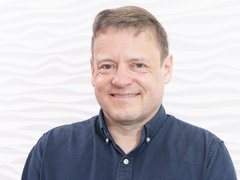
Using immune cells to create a new CAR-T therapy for multiple myeloma - Professor Anastasios Karadimitris
Read more about how Professor Karadimitris and his team are researching a new treatment for myeloma that uses special immune cells.
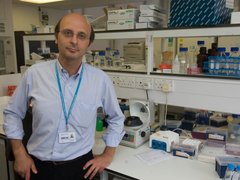
Understanding how childhood B-ALL develops - Professor Tariq Enver
Professor Enver wants to find out more about how childhood B-ALL develops so he can prevent it from happening or find better ways to treat it.
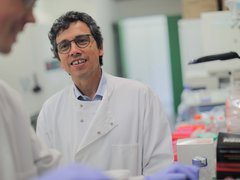
Finding a new way to treat leukaemia - Professor David Kent
Professor Kent and his team want to test a new tool that examines the differences that exist between normal blood cells and cancerous blood cells to develop technology that will lead to new way of treating leukaemia.
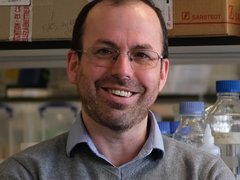
Developing new targeted treatments for B-cell lymphomas - Professor Pavel Tolar
Professor Pavel Tolar and his team are researching how receptors on the surface of B cells influence lymphoma growth.
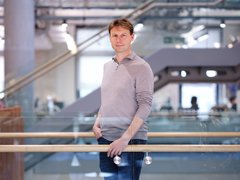
Creating a more personalised approach to treatment for DLBCL - Professor Du
Professor Du wants to understand more about why some people with DLBCL don’t respond well to current treatments. He wants to create a more personalised approach to treatment so these people can be given alternative treatment options.
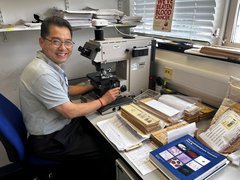
Understanding the role of genes in how ALL develops in children - Dr Lisa Russell
Dr Russell and her team are researching to understand more about the role genes play in how ALL develops so they can find drugs that could specifically target ALL cancer cells.
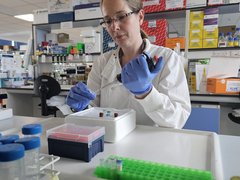
Using T-cells to understand the risk of getting very sick from covid - Dr Lim
Dr Sean Lim and her team are comparing two new tests to see how well they work and if they can predict who is more likely to get seriously ill from covid.
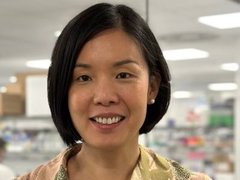
Understanding the risk of COVID for people with blood cancer - Professor Hippisley-Cox
Professor Hippisley-Cox and her team at the University of Oxford are conducting research to understand more about new treatments for people who are at a higher risk of getting ill from covid to see how effective they are.
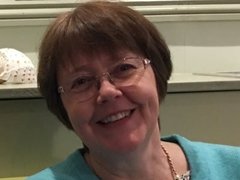
Understanding the best way to treat follicular lymphoma - Dr Linton
Read more about how Dr Linton who is researching how the order in which treatments are given can affect outcomes for people with follicular lymphoma to find the best way to treat the disease.

Trialling a personalised treatment approach for myeloma – The iFIT trial
We’re funding the iFIT trial in partnership with Cancer Research UK at the University of Leeds Institute of Clinical Trials Research. Professor Gordon Cook and Dr Charlotte Pawlyn will trial a personalised treatment approach for people with myeloma
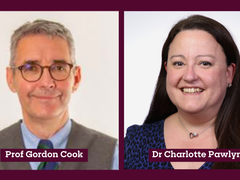
Advancing CAR-T cell therapy to transform treatment and provide hope for people with myeloma - Dr Charlotte Graham
Read more about Dr Charlotte Graham's clinical trial which is testing a new type of CAR-T cell therapy to find a new way to treat myeloma.
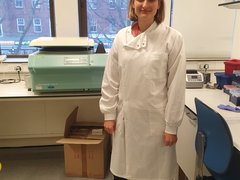
Using NHS Data to Improve treatment for people with myeloma
Professor Cairns is researching a way to use existing NHS data to better understand how well treatments work in the long-term for people with myeloma.
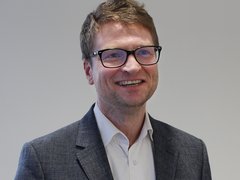
A new combination of drugs to treat Primary Central Nervous System Lymphoma (PCNSL) - Professor Fox
Read more how Professor Fox and his team are trialling a new drug combination that they hope will offer a new and better way to treat the rare blood cancer Primary Central Nervous System Lymphoma (PCNSL)
